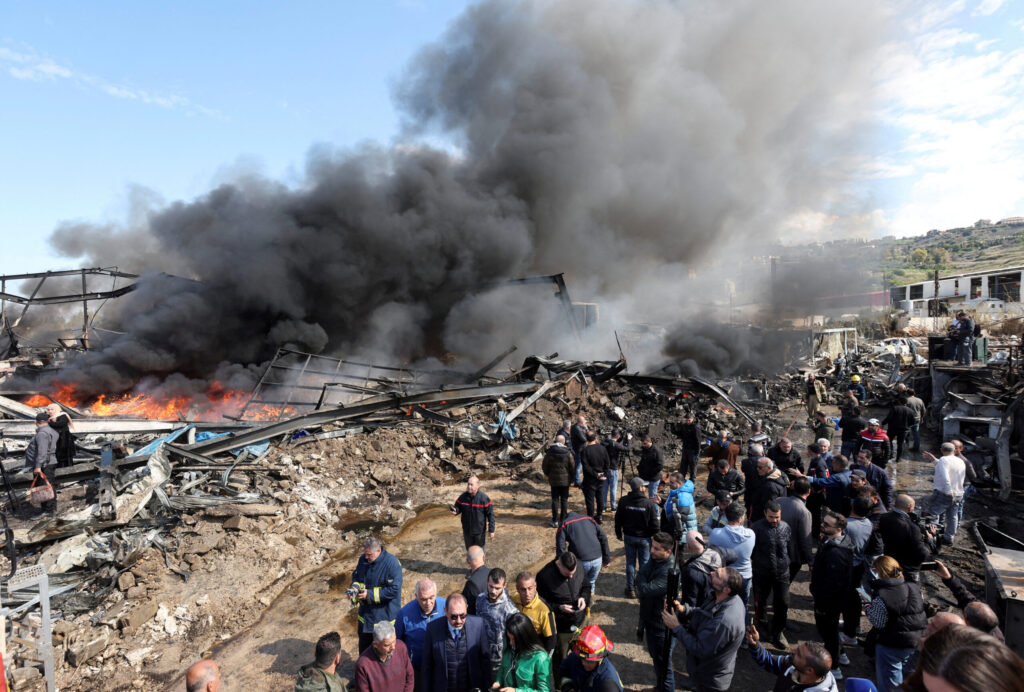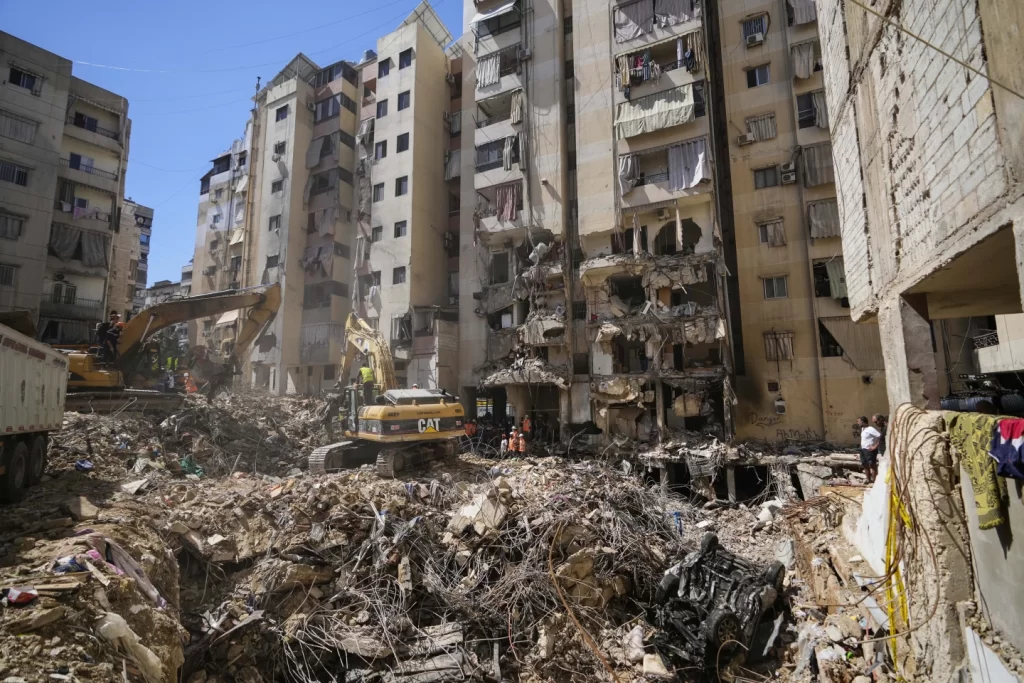At least 492 people have been killed in intense and widespread Israeli air strikes targeting Hezbollah in Lebanon, the Lebanese Health Ministry reported Monday. This marks the deadliest day of conflict in the country in almost 20 years, raising fears of a potential all-out war.

The Israeli military stated it had struck 1,300 Hezbollah targets in an operation aimed at destroying infrastructure the armed group had developed since the 2006 war. In response, Hezbollah launched more than 200 rockets into northern Israel, with Israeli paramedics reporting two people injured by shrapnel.
Lebanon’s Health Minister Firass Abiad confirmed that among the dead were 35 children and 58 women, with an additional 1,645 people wounded. The ministry did not specify how many casualties were civilians or combatants. Abiad also reported that thousands of families had been displaced by the strikes, adding to the humanitarian crisis.

The escalation has prompted urgent calls for restraint from world leaders. UN Secretary-General António Guterres expressed alarm at the situation, stating he did not want Lebanon to “become another Gaza.” European Union foreign affairs chief Josep Borrell described the escalation as “extremely dangerous and worrying” ahead of a gathering of world leaders at the United Nations in New York.
U.S. President Joe Biden said the United States was “working to de-escalate in a way that allows people to return home safely.” Meanwhile, the Pentagon announced it was deploying “a small number” of additional troops to the Middle East “out of an abundance of caution,” though specific details were not provided.
The conflict between Israel and Hezbollah has been simmering for nearly a year, sparked by the war in Gaza. It has resulted in hundreds of deaths, mostly Hezbollah fighters, and displaced tens of thousands on both sides of the border. Hezbollah, which is backed by Iran and designated as a terrorist organization by Israel, the UK, and other countries, has stated it is acting in support of Hamas and will not cease operations until there is a ceasefire in Gaza.

This latest escalation marks a significant intensification of the conflict, with the number of casualties and the scale of the Israeli operation far exceeding previous exchanges. The situation has raised concerns among international observers about the potential for a wider regional conflict, given the complex web of alliances and tensions in the Middle East.
As the crisis unfolds, humanitarian organizations are scrambling to assist the thousands of displaced families and tend to the wounded. The international community faces mounting pressure to intervene diplomatically to prevent further escalation.
The conflict’s impact extends beyond the immediate border region, with implications for regional stability and global geopolitics. As world leaders gather at the UN, the situation in Lebanon and its potential to spark a wider conflagration is likely to dominate discussions, underlining the urgent need for a diplomatic solution to prevent further loss of life and stabilize the volatile region.



